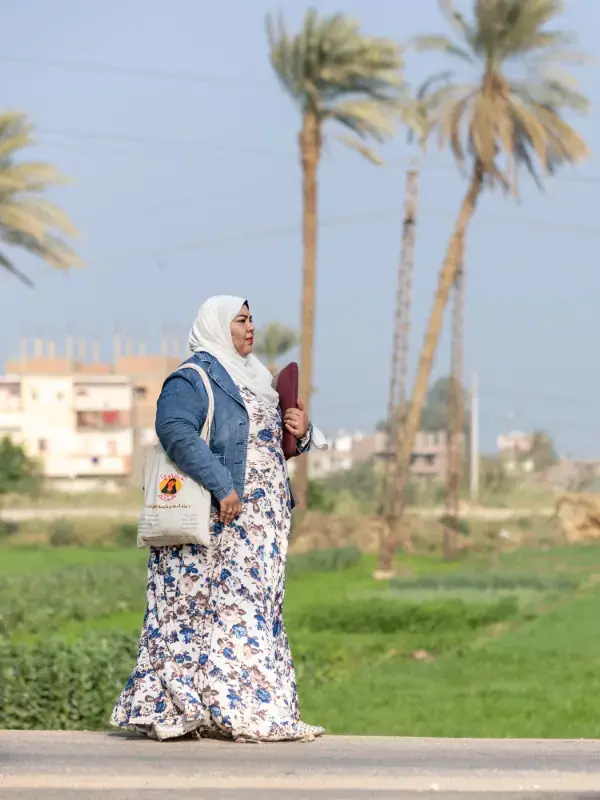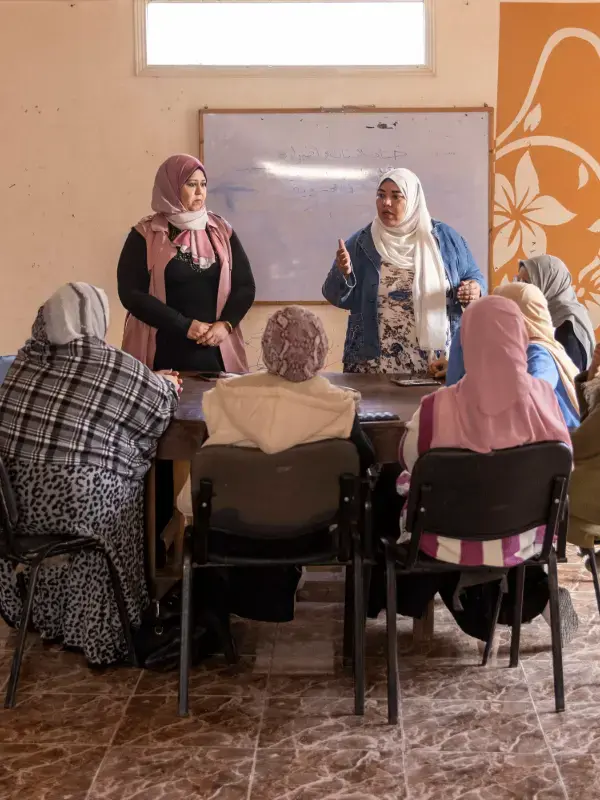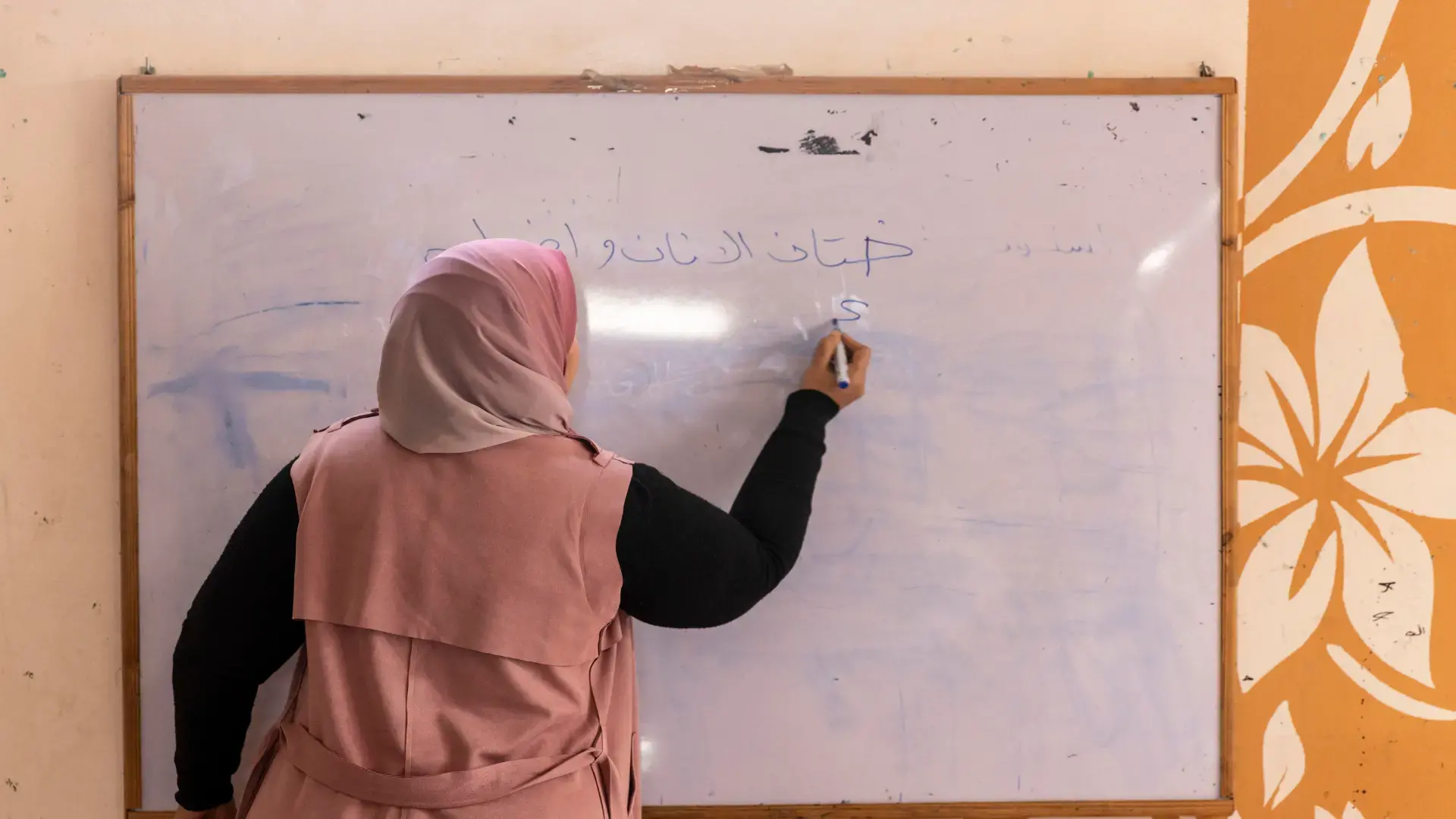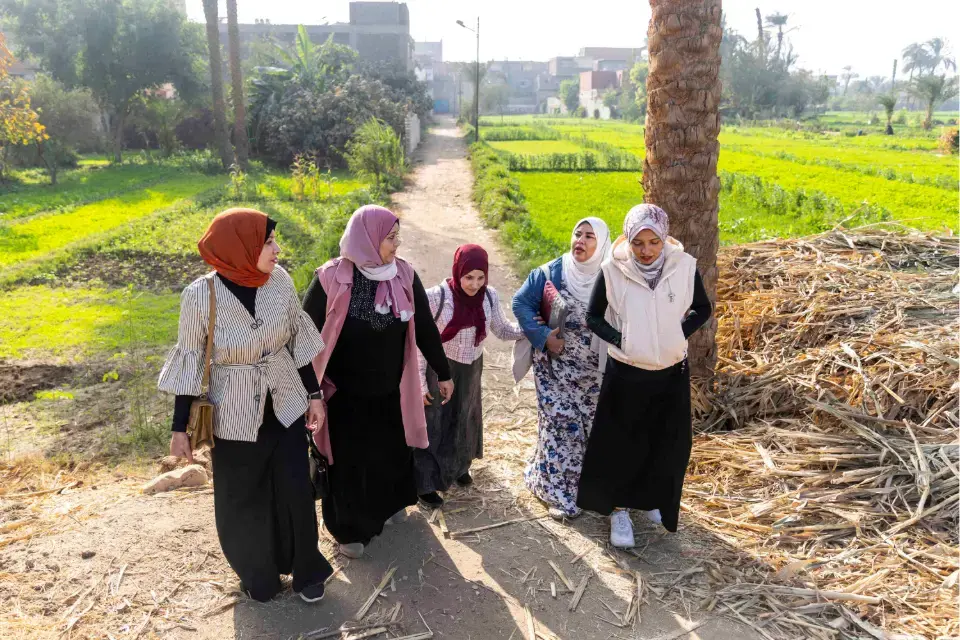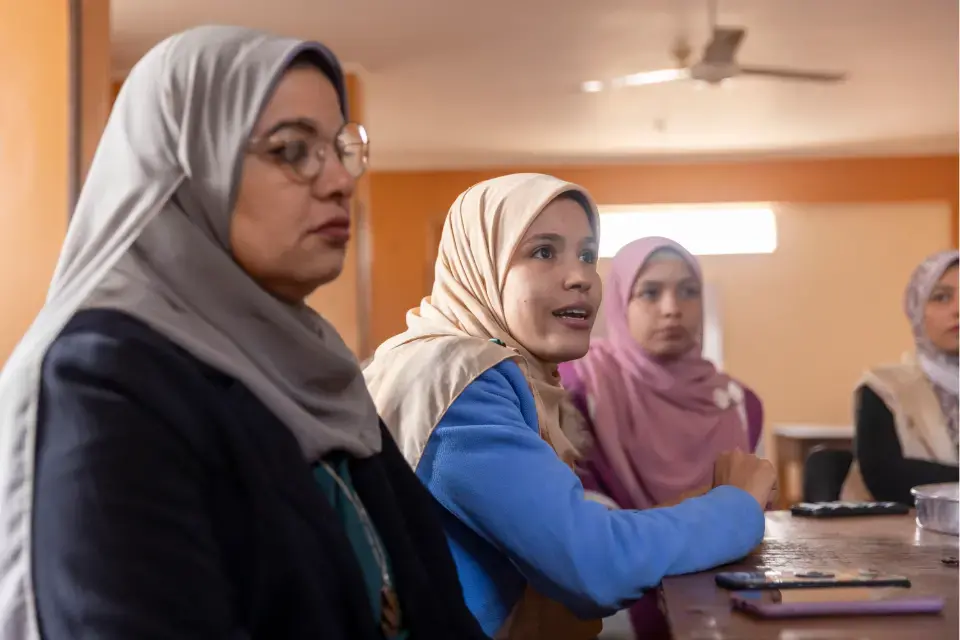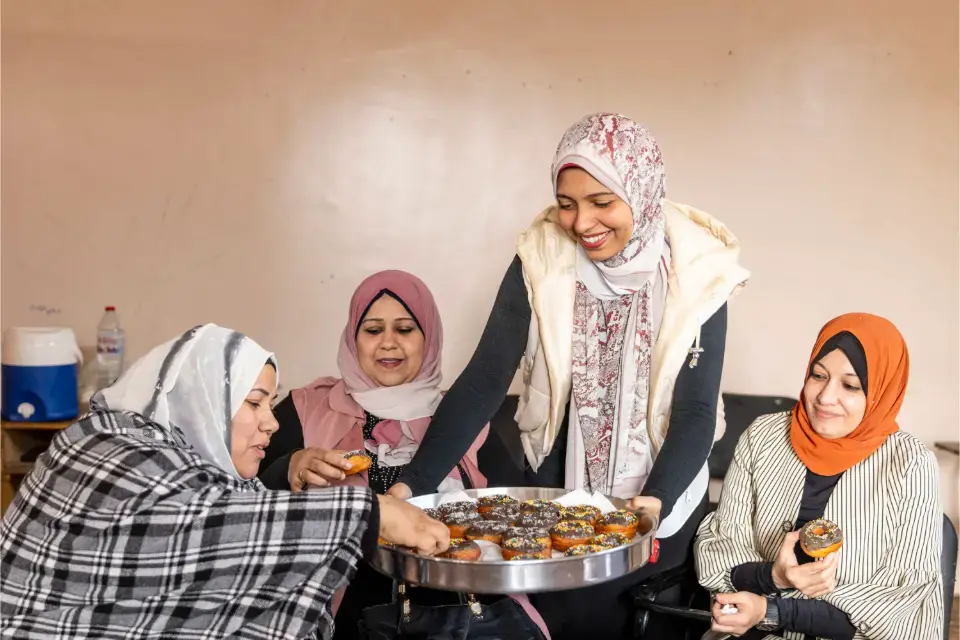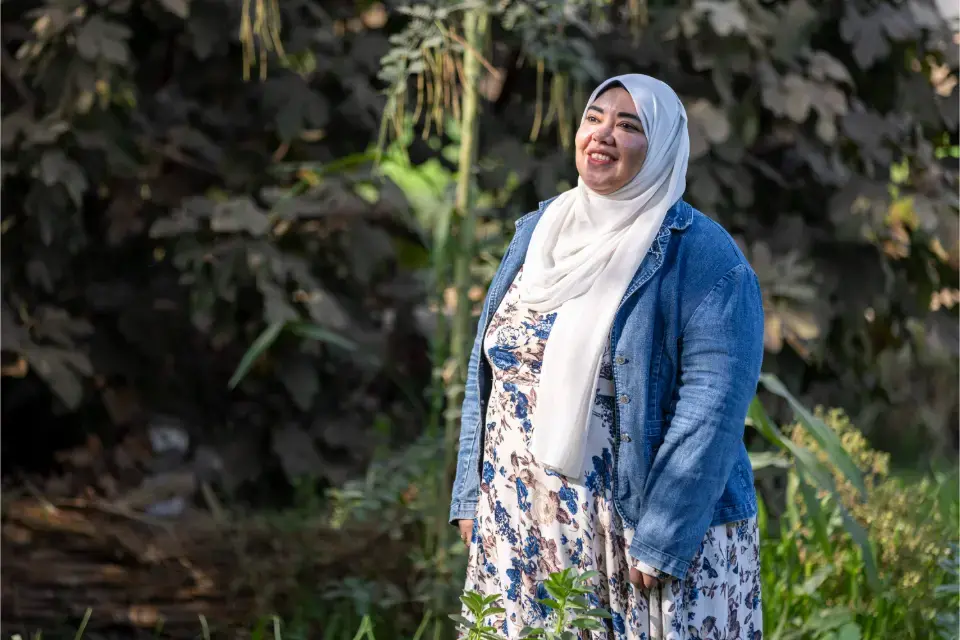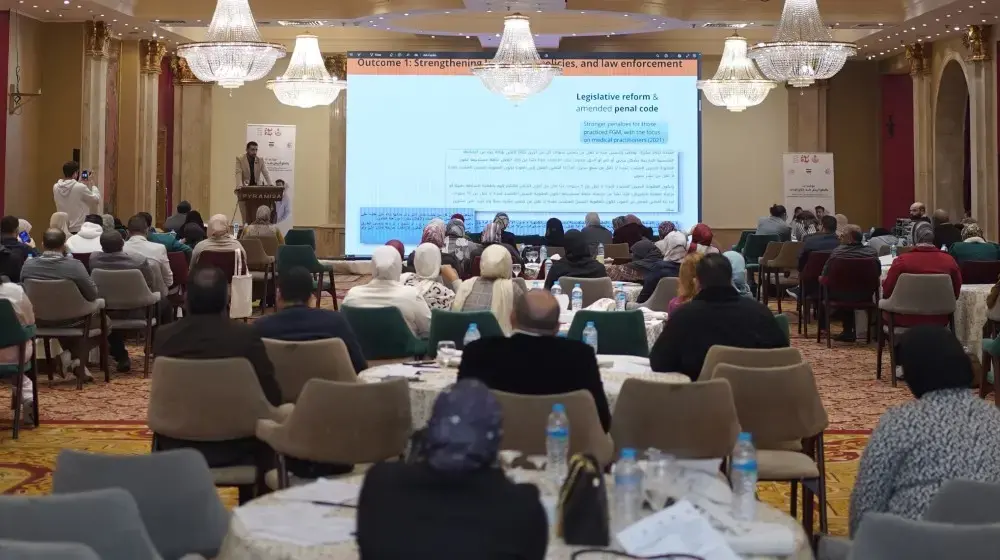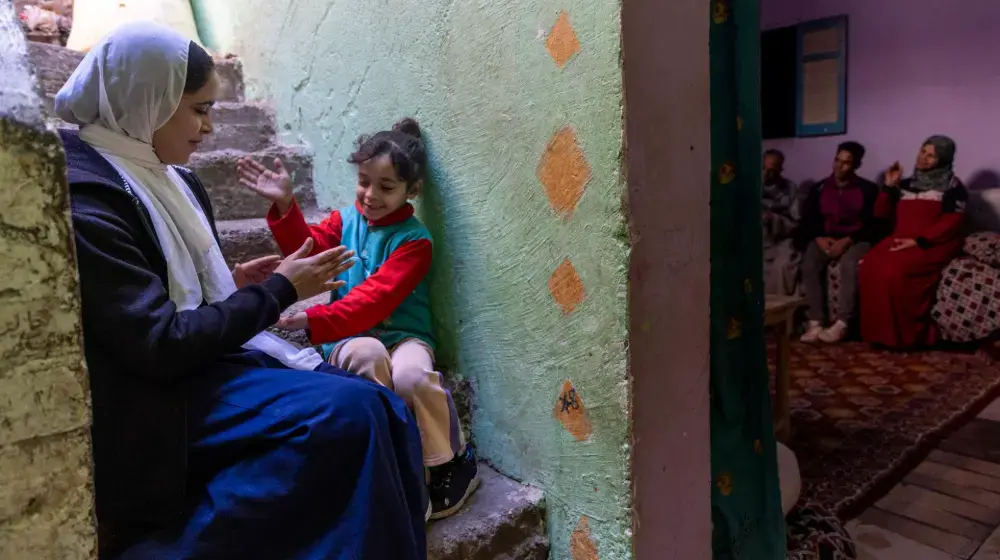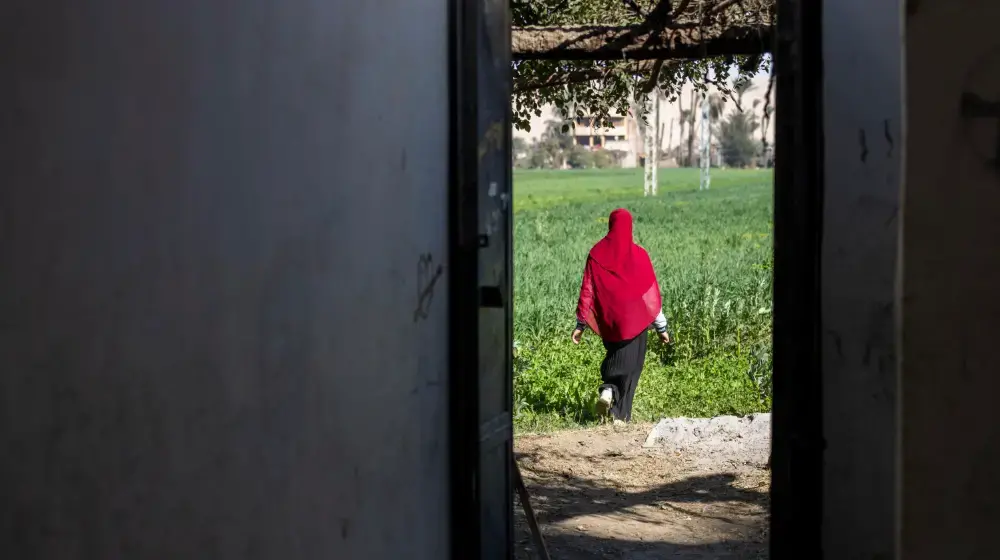Photos
Innovative solutions to eliminate FGM
UNFPA Egypt launched the Social Innovation Incubator in December 2021, aiming to engage girls and young women to design participatory solutions on ending FGM in their own communities. It ultimately enhances girls' and women's leadership and skills, while also utilizing an innovation accelerator methodology that provides opportunities to generate creative, and context-appropriate solutions.
The Social Innovation Incubator was piloted in Sohag, aiming at addressing grass-root challenges in the areas of reproductive health, family planning, maternal health, gender-based violence and harmful practices through innovative solutions, with the support of the Royal Norwegian Embassy.
The pilot program targets Sohag and its neighboring governorates, with the “Dafayer” initiative, which aims to employ innovative solutions to combat Female Genital Mutilation (FGM).
The Social Innovation Incubator offers young people, development practitioners and social entrepreneurs, an opportunity to design innovative solutions to local developmental challenges under UNFPA’s mandate.
The teams were supported with both technical and financial support (minimal seed funding) to enable them to prototype/test their solutions and reach a minimum viable product (MVP).
Seven teams were selected to present their solutions and business models in the pitching event to a panel of experts and received guidance on their ideas. This is the story of one of those selected.
Photo credit: Roger Anis / UNFPA Egypt

